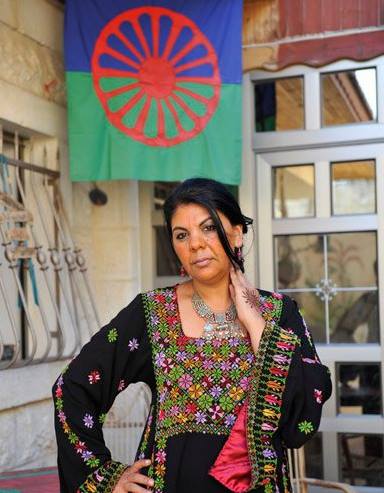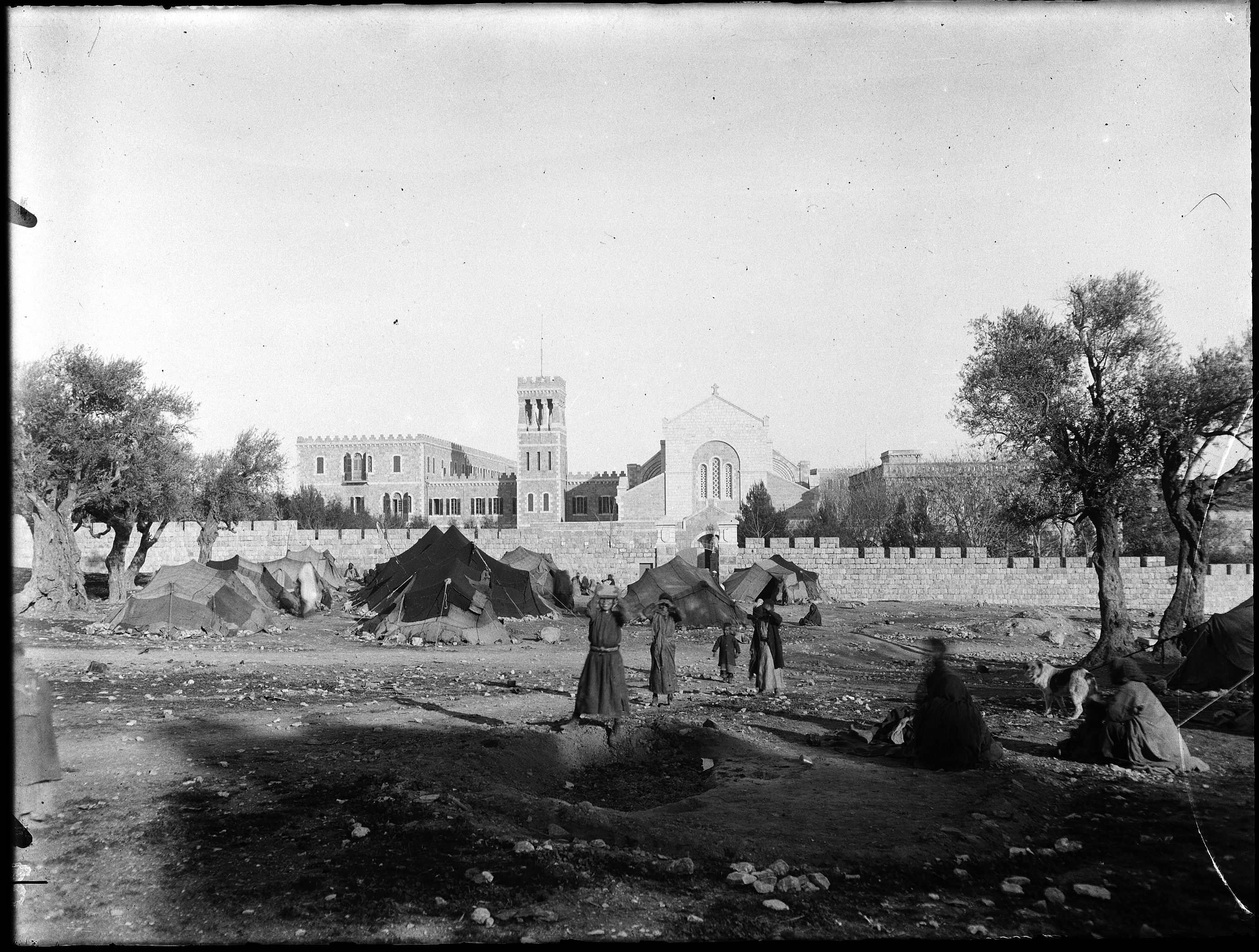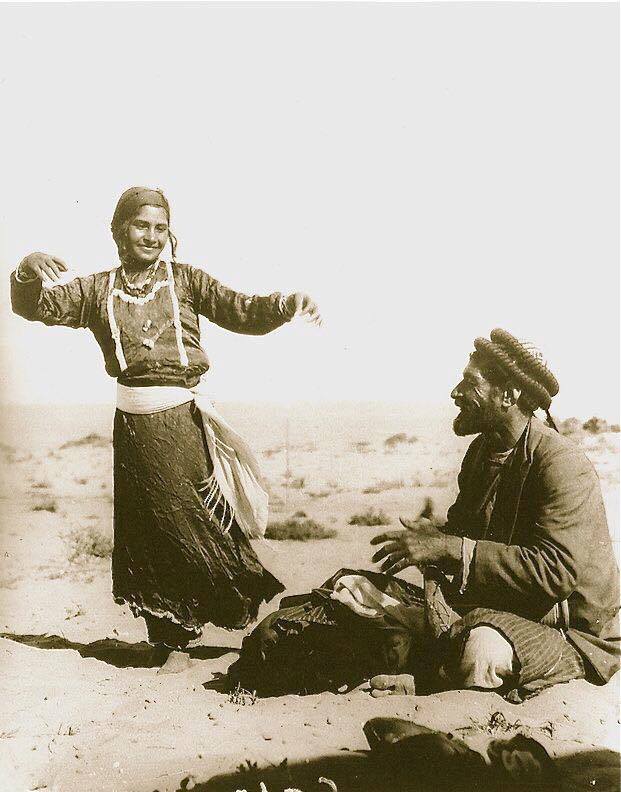Who has ever heard of gypsies in Palestine?
Meet one of the least known ethnic groups – the Domari gypsies, who have been living here for the last 500 years.
The English term “gypsy” suggests Egyptian origins. Gypsies, however, are a distinct ethnic group whose various languages and dialects share a common origin – India. Widely accepted historical hypotheses describe various tribes that left the Punjab between the seventh and tenth centuries due to war and famine. Earlier legends mention tribes of musicians and dancers who went from India into Persia in the third or fourth centuries. Greek and Arab conquests in the East resulted in further migrations towards Europe and the Middle East. For hundreds of years these communities supplied various services to urban and rural populations, constantly on the move and striking a balance between a nomadic and semi-nomadic lifestyle.
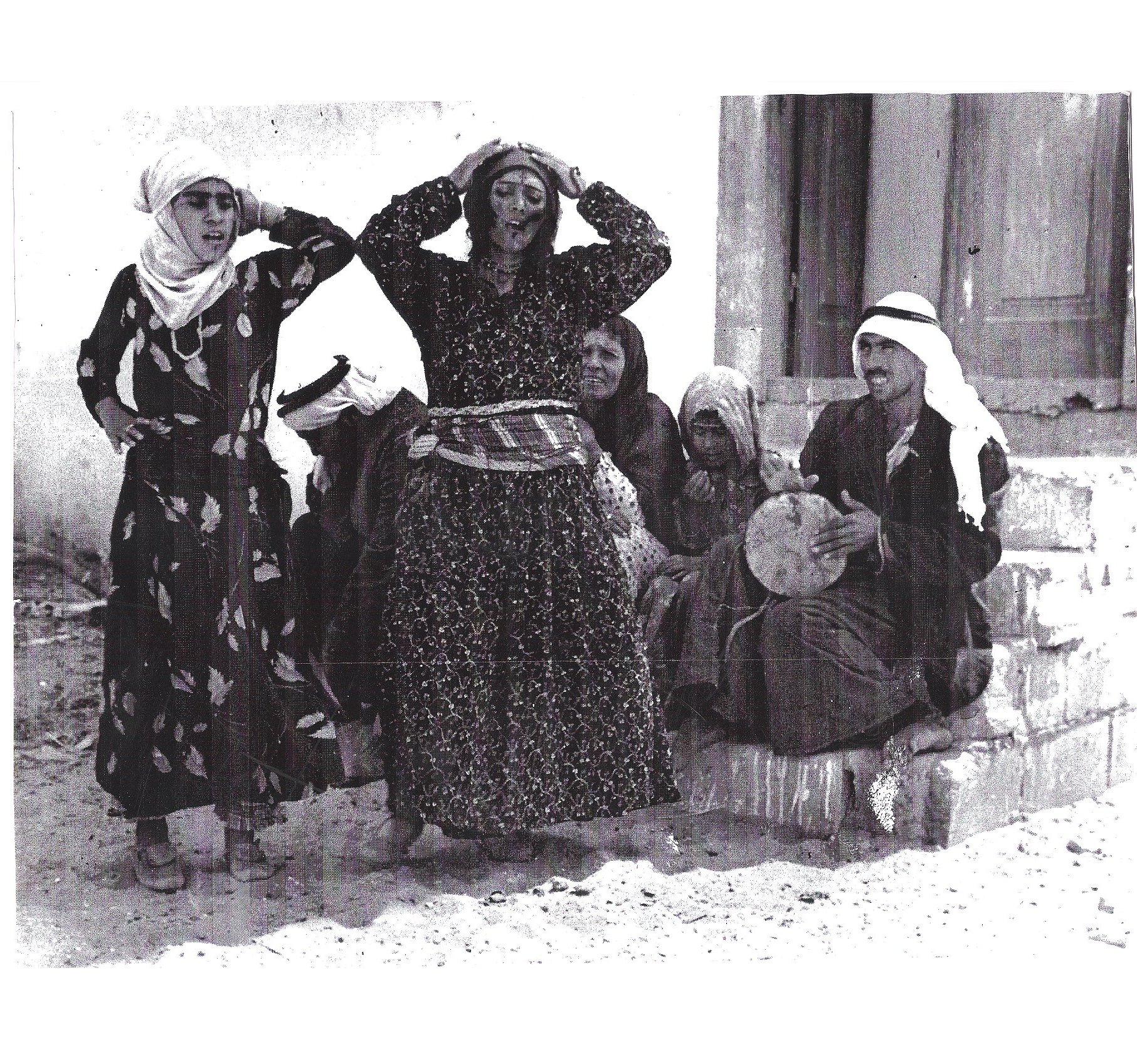
girl = lashi; city = uyar;
bread = manah; water = bani;
beautiful = golda;
father = bayom;
mother = dayom;
grandmother = dadom
Those in Europe are known today as the Roma or Romani, whereas those in Armenia are called the Lom or Lomari. In the Middle East, they call themselves the Dom or Domari. These names originate from the times of departure from India, the routes they adopted, and the class and caste differences that applied among them there. Today, the Gypsy world population is estimated at more than 40 million people.
The Domari live in Iran, Iraq, Turkey, Syria, Lebanon, Jordan, Palestine, and Egypt. In Palestine they are centered in Gaza and the Jerusalem area. Even today, Domari suffer discrimination and persecution. Their socio-economic status is amongst the lowest. Unfortunately their culture and linguistic heritage is in decline as a consequence. Traditional occupations such as metalwork, music, and dance are disappearing. Wars in Iraq and Syria have resulted in increased Domari persecution and added to the number of refugees spilling into Turkey and Jordan.
Domari are primarily Sunni. Despite their immersion into Muslim Arab society, the Dom nevertheless maintain their awareness as a separate ethnic entity, partly by tradition, and partly as a result of everlasting marginalization and isolation.
Arabic is the principal language of the Dom community. Only a few of the elders speak Domari as the language of daily interaction in their homes, with the younger generation having only a limited vocabulary. As an exclusively spoken language, Domari is quickly disappearing.
Apart from their language, traditional occupations, dress, and songs, today’s Dom are able to point to a few traditions that distinguish them from mainstream Muslim Palestinian-Arab society. One such custom is the pilgrimage to Nabi Musa. Although gatherings at this site are common for all Muslims of the region, the Dom have a specific day in April on which they gather there.
Domari weddings are characterized by the extended period in which the bride and groom’s mothers and fathers pair up to take full responsibility for the preparations. Most marriages are still arranged.
The largest Palestinian Domari community is composed of refugees from the Six-Day War who fled to Jordan – today numbering approximately 50,000. Some have entered professional life, working in media and becoming famous as composers and musicians. Jerusalem Domari maintain family ties with the Amman community, travel to Jordan regularly, and host visiting relatives in Jerusalem.
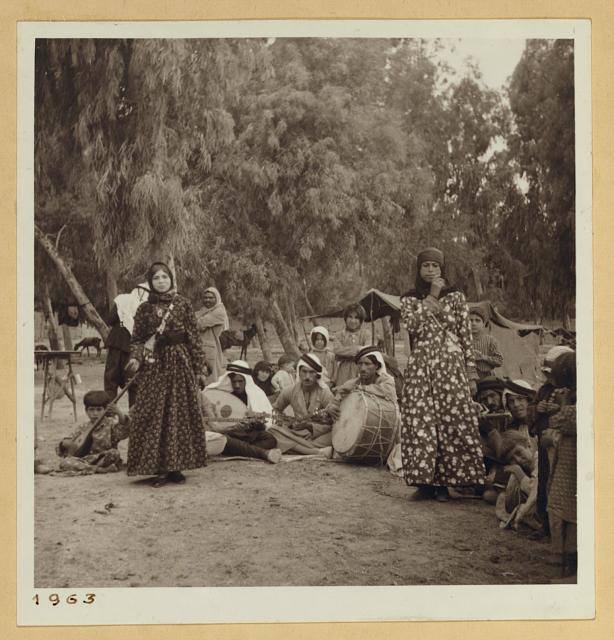
Jerusalem Domari
In the 1800s, Jerusalem Domari lived mainly in tents in the Wadi Joz area outside the Old City walls. Over the past century, however, many gradually moved inside to the Burj al-Laqlaq neighborhood near Lion’s Gate and the northern entrance to the Dome of the Rock and Al-Aqsa Mosque. Some families have left the Old City in recent years to settle in the surrounding neighborhoods and villages. There are approximately one thousand Domari who live in greater Jerusalem.
Today’s young generation, women in particular, strive for access to elementary education and vocational training in an effort to improve their situation as well as that of their families. Amoun Sleem, born and raised in the Burj al-Laqlaq neighborhood, is one of these pioneers. She remembers her grandmother, Zarifi, telling her the story of wandering horses that choose to live with gypsy families because of their special affinity to care for them. Zarifi was a healer with knowledge of herbal remedies, baby massage, and midwifery. Amoun remembers her going out every day at dawn to gather herbs.
To allow children of her community to go to school despite discrimination, Amoun did something unusual for her community. She was around 14 years old when she started to teach and support other Domari children in her home. In addition to teaching her own community, she worked in hotels and hostels and learned to speak English and Dutch.
In 1999 she founded the Domari Society of Gypsies in Jerusalem in her home. It was established in response to severe discrimination, cultural marginalization, and poverty directed towards the community. In 2005 it moved to its current location in Shu’afat.
The society focuses on improving the self-reliance of the Domari community. Its programs promote remedial education for women and children, and vocational training for women. The society’s center also has a crafts gallery and catering kitchen. It is the only grassroots Domari community organization in the Middle East. Its activities are funded by donations from individuals and organizations around the world.
The Domari Society of Gypsies in Shu’afat, East Jerusalem, features a crafts gallery with traditional Domari embroidery, jewelry, pottery, and home textiles. Books on Domari history and recipes in English are also available. Group visits feature talks about Domari culture and history over coffee and traditional Domari cuisine. Visitors are welcome and encouraged to request more information. A Grammatical Sketch of Domari has been published by Yaron Matras, University of Manchester School of Languages, Linguistics and Cultures.

